Cancer treatment in clinics of Germany

For many, a diagnosis of cancer once seemed like a death sentence, but today the situation has changed dramatically. Thanks to advances in medicine, many forms of cancer can be cured if detected at an early stage. But, unfortunately, cancer care is not equally well-developed in all countries.
Cancer treatment in Germany is one of the most popular areas of medical tourism. There are high-quality clinics here that accept patients from all over the world. The country's government annually invests heavily in research and development of new therapy methods, and German doctors have achieved impressive results through the use of advanced protocols and the latest equipment.
Unfortunately, many forms of cancer develop unnoticed in the early stages, and failure to diagnose early can cost lives. But innovative methods of treating oncology in Germany prove that this disease can and should be fought.

Want to know how much the treatment costs?
Answer a few questions and get preliminary information about the cost of diagnosis and treatment!
Advantages of cancer treatment in Germany
- Early diagnosis. German clinics are equipped with the most modern diagnostic equipment, which has the ability to detect cancer in the early stages of development. Doctors use innovative imaging techniques, laboratory and genetic tests to recognize a tumor as early as possible.
- Efficiency. After the diagnosis is made, a detailed schedule of examinations and procedures is drawn up. The patient knows the exact dates and time of each stage of treatment, which helps to carry out all procedures in a short time and without delays. The clinics are equipped with the latest technology, and all processes are streamlined for maximum efficiency.
- Interdisciplinary approach. To select the optimal treatment regimen, a consultation is held, which includes oncologists, surgeons, radiologists, chemotherapists and other necessary specialists. They analyze the location and stage of the formation, the general condition of the patient and concomitant pathologies, which allows for maximum personalization of the program.
- Leading specialists. Cancer patients are supervised by professors and heads of departments who have received international recognition. Many of them are authors of scientific papers and guarantee the highest quality of assistance.
- Modern methods. Oncologists try to preserve healthy organs and tissues as much as possible, using organ-conserving surgeries, as well as targeted and proton therapy. The latest medicines and medical equipment are used while maintaining reasonable prices.
- Professional care. The patient is surrounded by attentive staff who monitor their well-being and help cope with side effects. Psychological support is also provided to maintain a positive attitude and belief in recovery.
- High precision. Thanks to modern examination methods, the experience of doctors and an interdisciplinary approach, the level of diagnostic errors in German clinics is one of the lowest in Europe - less than 1%. This guarantees the correct diagnosis and selection of the optimal treatment regimen.
- Best results. According to research, the average life expectancy of cancer patients in Germany is 3–4 times higher than in the CIS countries. This is due to early diagnosis, access to innovative techniques and high professionalism of doctors. Here, patients get a chance for long-term remission and a full life after undergoing therapy.
- Payment transparency. The cost of cancer treatment in Germany is regulated by the state registry G-DRG and does not depend on citizenship. The clinic generates an invoice based on your diagnosis and registry data. You pay it as a deposit and receive an official invitation. If the total amount is less, the difference is returned to your account.
Cancer treatment methods in oncology clinics in Germany
To help cancer patients, German doctors successfully combine traditional and innovative methods, which allows them to achieve positive results even with advanced forms of cancer.
Surgery
Treatment in oncology clinics in Germany is carried out by surgeons with extensive experience. They use the latest technologies to perform operations and strive for the most gentle, minimally invasive techniques for quick recovery and minimization of complications.
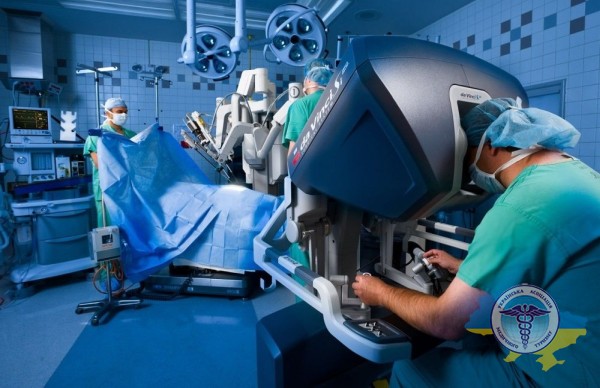
Depending on the location and size of the pathology, medical specialists carry out:
- Laparoscopic and thoracoscopic operations. The first involves resection of a tumor in the abdominal cavity with a special instrument - a laparoscope. It is a long, thin tube with a camera and an LED at the end. The laparoscope is inserted through a small incision of up to two centimeters, which minimizes trauma and speeds up recovery. Thoracoscopic surgery is similarly performed in the chest using a thoracoscope.
- Transluminal operations. In this method, the surgeon inserts special instruments through the body's natural orifices to perform resection without incisions. Transluminal surgery is used to remove colon polyps, uterine fibroids, ovarian cysts and other early stage neoplasms in the gastrointestinal tract and genitourinary system.
- Robotic surgery. The Da Vinci system is used for it - the doctor controls robotic manipulators through a console. A camera with twenty-fold magnification and a hand stabilization function make the operation as precise as possible. It is actively used to remove tumors of the prostate gland, breast, uterus, lungs and other organs.
- Open operations. If the size and location of the tumor cannot be removed using a minimally invasive method, traditional open surgery is used. The surgeon makes an incision of up to 20 cm to gain direct access to the organ. This technique allows you to remove large and widespread tumors, but rehabilitation after it is slower.
Conservative therapy
In addition to surgery, oncologists in cancer treatment clinics in Germany use various conservative techniques.
Radiotherapy
It is based on the use of ionizing radiation to destroy cancer cells and stop tumor growth. Radiation therapy can be used at different stages depending on the specific clinical situation.
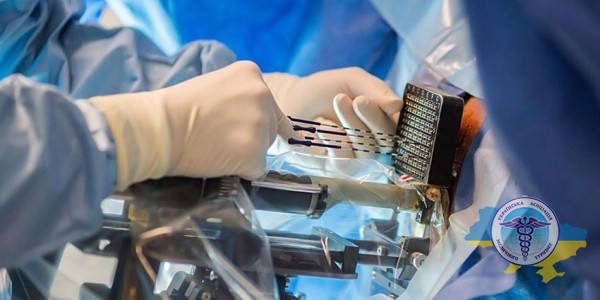
There are several types of radiotherapy that are practiced in German cancer centers:
- Remote. Irradiation is performed externally using special accelerators, such as TrueBeam or CyberKnife. Thanks to the high precision of irradiation (up to 1 mm), these units allow the radiation to be focused as much as possible on the tumor, minimizing the impact on healthy tissue.
- Brachytherapy. For this method, radioactive sources in the form of beads or needles are placed directly into the tumor tissue. This provides local radiation exposure to cancer cells without affecting surrounding tissue.
- Radionuclide therapy. During this procedure, the patient takes radiopharmaceuticals (for example, radioactive iodine) orally in liquid form or capsules. The radioactive substance selectively accumulates and destroys cancerous lesions from the inside.
Chemotherapy
As a rule, chemotherapy is used to reduce the size of the tumor before surgery, destroy distant metastases and suppress their growth.
This is a method of influencing pathology with the help of special drugs - cytostatics, which suppress the growth and division of cancer cells. Chemotherapy drugs are administered intravenously, intramuscularly, orally, or topically. The course is selected individually, taking into account the type, stage and location of cancer.
The most modern and effective drugs developed by leading pharmaceutical companies are used in Germany. Thanks to innovative mechanisms of action, they have a less pronounced toxic effect on healthy organs compared to cytostatics of previous generations.
Hormonal therapy
It is used for hormone-dependent forms of cancer. Hormone therapy is based on suppressing the activity of those hormones that stimulate the growth and development of tumor lesions. It is most often prescribed for breast, prostate and thyroid cancer.
Hormonal therapy can be used either alone or in combination with surgery and other conservative methods. It allows you to effectively control tumor growth and increase the life expectancy of patients with hormone-positive forms of cancer.
Innovative techniques
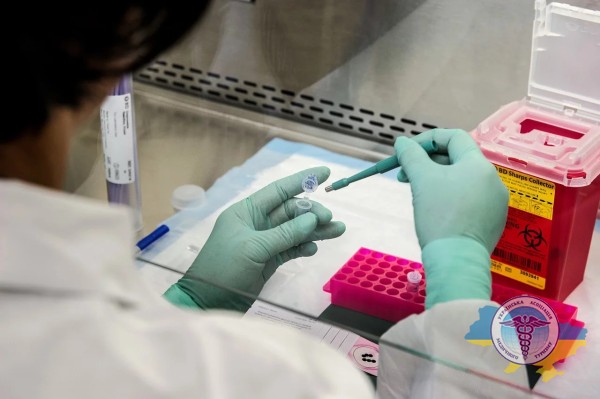
In German medical institutions, innovative methods are actively used that most accurately affect the tumor focus and minimize damage to healthy tissue. These include:
- Targeted therapy. It is based on the use of special drugs - monoclonal antibodies that block growth signals in cancer cells and stimulate the immune system to destroy them. Monoclonal antibodies bind to certain markers on the surface of cancer cells and suppress pathological processes inside them.
- Immunotherapy. It is aimed at stimulating the body’s own defenses so that they more effectively recognize and destroy pathologies. For this purpose, drugs based on monoclonal antibodies, interferons and other biological products are used.
- CAR-T therapy. This is a high-tech method based on genetic engineering. T cells are isolated from lymphocytes and then modified using genetic engineering to produce chimeric antigen receptors that recognize cancer cells. They are then multiplied and reintroduced to the patient to combat the disease.
- HIPEC therapy. This is chemotherapy with heating the solution directly in the abdominal cavity, which is used for multiple lesions of the peritoneum. After eliminating visible metastases, a chemotherapy solution heated to 42-43°C is pumped through the tubes into the abdominal cavity, which increases the degree of its penetration into the tissue and overall effectiveness.
- Ablation. This is the destruction of cancer cells using extreme temperatures. During cryoablation, they are frozen with liquid nitrogen, and during high-intensity ultrasound ablation, they are destroyed with ultrasound. These methods are minimally invasive and allow the surrounding tissue to be preserved.
- Isolated hyperthermic chemoperfusion. The procedure is used for tumors of the extremities and makes it possible to avoid amputation. Doctors restrict blood flow in the area of the tumor and inject high doses of anticancer drugs there, without affecting other organs. At the same time, the tumor can be heated to enhance the effect.
- Intraoperative radiotherapy (IORT). It involves irradiating the remains of a tumor or its bed during surgery to remove a malignant neoplasm. The procedure significantly reduces the likelihood of relapse, since even micrometastases remaining after surgery are irradiated.
- Cryotherapy. Another gentle method of treating cancer is freezing with liquid nitrogen or other cryoagents. Cryotherapy can be an alternative to classical surgery in some cases, destroying pathological cells without affecting healthy organs.
How do German doctors treat stage 4 cancer?
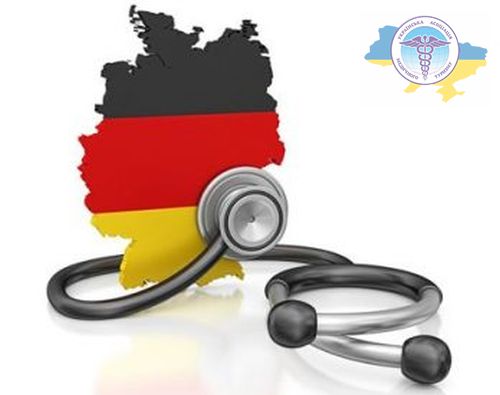
The latest techniques make it possible to achieve 100% recovery for patients in the early stages of the disease. But what if metastases have already spread throughout the body in stage 4 cancer?
German oncology centers can help even in such cases. Patients with advanced forms of cancer receive high-quality therapy, allowing them to achieve 5-year survival or even complete cure.
The most promising methods for treating stage 4 cancer in German clinics are:
- Electrochemotherapy. Using electrodes placed on the tumor, current pulses of a certain frequency are applied, which leads to the formation of pores in the membranes of cancer cells. Then antitumor drugs are introduced into the bloodstream, which freely penetrate through these pores into the cells and destroy them.
- Cancer vaccines. The principle of action is based on stimulating the immune system to fight the tumor. To create a vaccine, doctors take dendritic cells from a patient, which are then processed in a laboratory. During processing, they remember the markers of a given patient's cancer cells. They are then returned to the body, where they activate the immune system to fight the disease.
How are diagnostics carried out during oncology treatment in Germany?
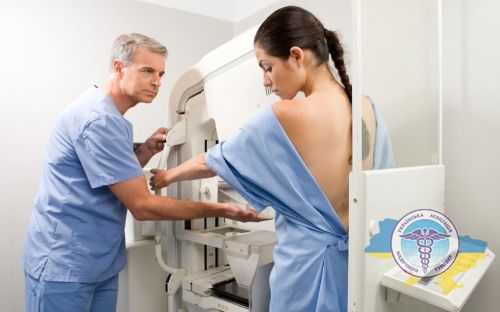
German medical centers approach diagnostics comprehensively. This means that highly qualified specialists of different profiles are involved at different stages. The following are most often used for diagnosing oncology in German clinics:
- Laboratory tests. A general and biochemical blood test is performed to assess the general condition, and the presence of tumor markers is also examined. Their elevated level may indicate the presence of certain types of cancer.
- Biopsy with molecular genetic testing. To do this, a part of the tumor tissue is taken and analyzed to identify the type of malignant cells, and the genetic mutations that trigger uncontrolled growth are determined.
- Bone marrow puncture. This is a procedure for collecting bone marrow fluid, which is performed to exclude metastasis of cancerous lesions to the bones. Since the bone marrow is a blood-forming organ, its damage is extremely dangerous. The analysis allows us to determine the extent of the oncological process.
- Endoscopic examination. Involves a visual inspection of body cavities and canals using a flexible tube with a camera (endoscope). Endoscopy is performed to identify pathologies of the gastrointestinal tract, bronchi and urinary tract at an early stage, when there are no obvious symptoms. Endoscopy is highly accurate, non-invasive and allows you to regularly monitor the condition of organs.
- Radiation diagnostics. Includes computed tomography and magnetic resonance imaging followed by 3D visualization. Thanks to it, you can obtain a three-dimensional image of the tumor and surrounding tissues with millimeter resolution, assess its size, borders and location.
Cost of cancer treatment in German clinics
There is an opinion that treatment in Germany costs fabulous money. In fact, the cost of procedures in this country can be 30-50% lower than in Switzerland, the UK or the USA. The total estimate depends on the specific diagnosis, treatment methods, the chosen clinic and the qualifications of the doctor.
Unfortunately, it is not so easy to accurately calculate the cost of cancer treatment in German clinics. Unlike elective surgeries, there are too many unknown variables. During the examination, something may become clear that will change the prognosis and require correction of the protocol. And this will affect the final cost and duration of the patient’s stay in the clinic.
The following are the estimated prices for oncology treatment in Germany:
| Procedure | Cost, euro |
|---|---|
| Examination for diagnosis | from 4500 |
| One course of chemotherapy | from 3500 |
| Radiotherapy | from 5000 |
| Brachytherapy | from 5932 |
| Cyber knife | from 8628 |
| Radiofrequency ablation | from 10785 |
| Da Vinci Robot | from 19412 |
| Virotherapy | from 4500 |
| TrueBeam Linear Accelerator | 10000-23000 |
| HIFU therapy | 9500-22000 |
| Gamma Knife | 6000-25000 |
| Hormonal therapy | 3500 |
| Targeted therapy with Keytruda | 6700 |



